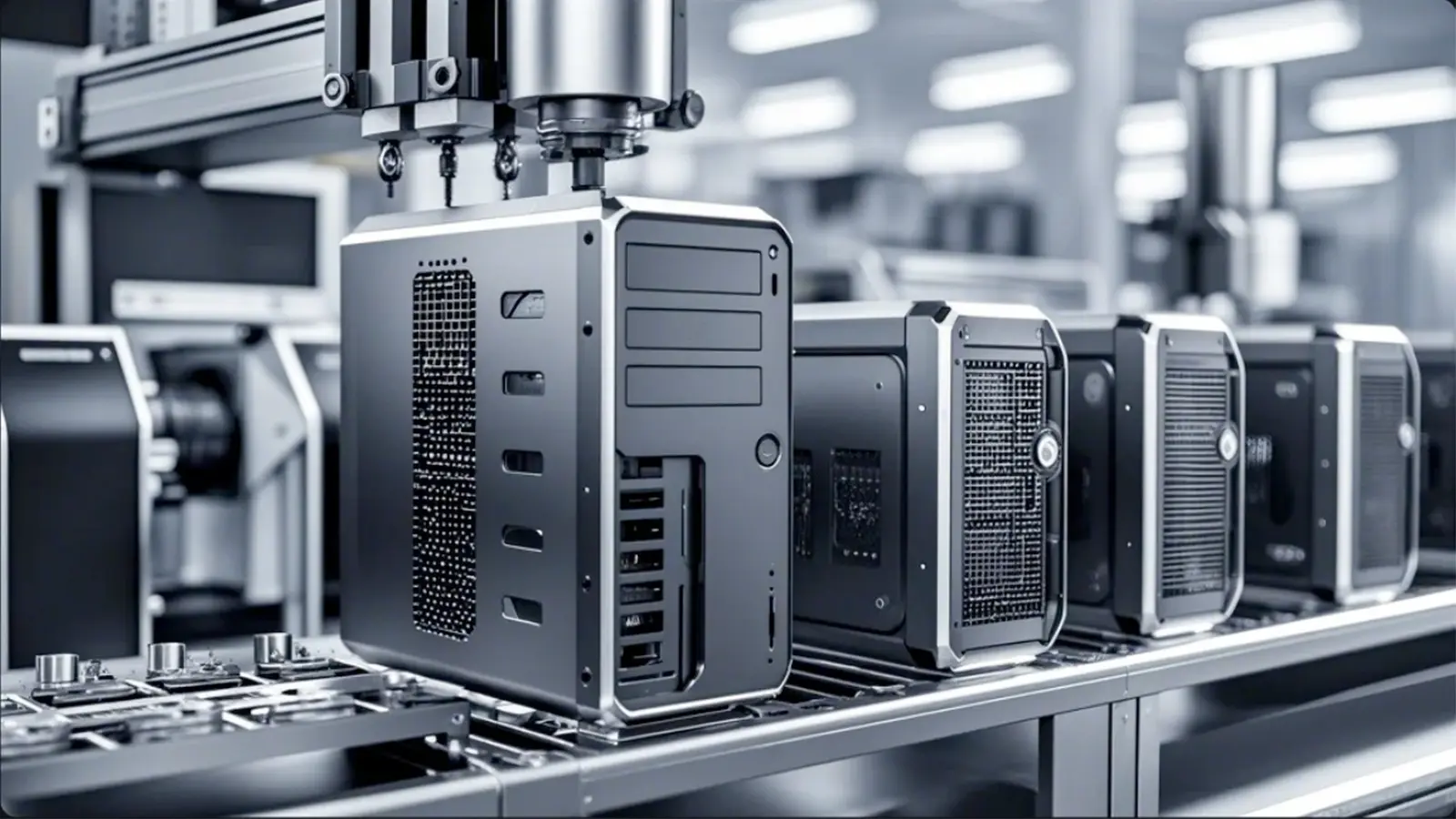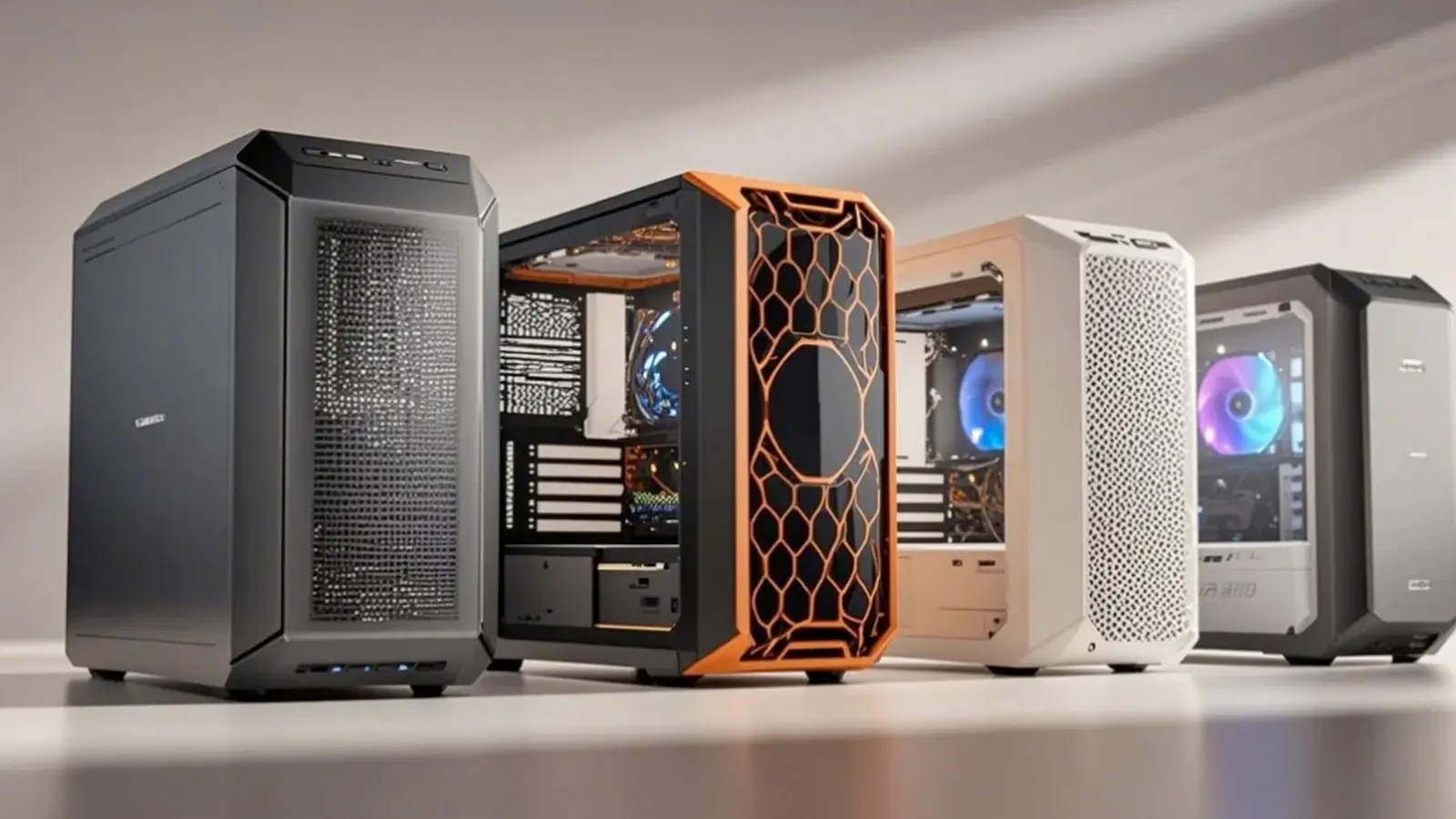How to Communicate Effectively with PC Case Manufacturers: A Practical Guide for Business Clients
In the rapidly evolving technology industry, the PC case serves as a core component of computer hardware, directly impacting product performance and market competitiveness. For business clients, establishing efficient communication channels with Pc Case manufacturers not only ensures the precise delivery of product requirements but also optimizes supply chain efficiency and reduces procurement costs. This article, written from a third-party perspective, explores the entire process of communicating with PC case manufacturers in detail, offering practical advice and strategies to help business clients achieve greater success in their supplier collaborations.

The Current State of the PC Case Manufacturing Industry and Business Needs
With the rise of cloud computing, artificial intelligence, and edge computing, the demand for high-performance computing equipment among businesses continues to grow, making the PC case—an essential hardware carrier—increasingly critical. According to industry data, the global PC case market is projected to grow at an average annual rate of 5% over the next five years, particularly in the server and industrial PC case sectors. This trend provides business clients with more options while simultaneously raising expectations for suppliers’ responsiveness and customization capabilities.
For business clients, the relationship with PC case manufacturers goes beyond simply purchasing a single product; it involves collaborating to develop tailored solutions that meet specific needs. For instance, a data center operator might require server PC cases with superior cooling performance, while a gaming hardware brand may prioritize aesthetic design and RGB lighting compatibility. Thus, communication with PC case manufacturers is no longer just about inquiries and orders—it encompasses multidimensional collaboration involving technical specifications, delivery timelines, and after-sales service.
Step 1: Define Needs and Objectives Clearly
Before engaging with PC case manufacturers, business clients must clearly outline their requirements. This includes not only the PC case’s size, material, and functional specifications but also considerations like budget, procurement volume, and delivery timelines. For example, a mid-sized company might need 1,000 ATX-spec PC cases for asseMbling entry-level workstations. In this case, they should prepare a detailed list of needs, including:
- Technical Specifications: Supported motherboard types (e.g., ATX, Micro-ATX), cooling solutions (e.g., air or water-cooling compatibility), number of expansion slots, etc.
- Design Preferences: Whether brand customization (e.g., logo printing) or specific color options are required.
- Volume and Timeline: Order quantity, delivery schedule, and whether phased delivery is needed.
- Budget Range: A clear price range per unit to enable manufacturers to provide suitable quotes.
By organizing this information in advance, businesses lay a solid foundation for subsequent communication, avoiding delays and revisions due to unclear requirements.

Step 2: Select the Right PC Case Manufacturer
The market offers a wide range of PC case manufacturers, from globally recognized brands to local small-scale factories, each with distinct strengths. Business clients can evaluate potential partners based on several factors:
- Production Capacity: Does the manufacturer have sufficient production lines and equipment to handle large orders?
- Customization Capability: Can they provide design and production support tailored to client needs?
- Industry Reputation: What do customer reviews or peer consultations reveal about their product quality and delivery reliability?
- Geographic Location: Manufacturers closer to the client may offer advantages in logistics costs and response times.
For example, a Chinese server provider might prefer local brands like SAMA or Golden Field, known for their supply chain integration and quick responsiveness. Meanwhile, a U.S.-based company might opt for NZXT or Corsair to ensure high standards in design and technical support. Regardless of the choice, business clients can establish initial contact through official websites, trade shows, or industry referrals.
Step 3: Initial Communication and Inquiry
The first interaction with a PC case manufacturer is critical and typically occurs via email or phone. Business clients should ensure their message is concise yet comprehensive, including all key details. For instance, a standard inquiry email might look like this:
Dear [Manufacturer Name] Team,
Greetings! We are [Company Name], specializing in [industry sector], and are currently seeking a PC case supplier for collaboration. Our requirements are as follows:
- Specifications: ATX PC case, water-cooling compatible, with 4 expansion slots
- Quantity: Initial batch of 1,000 units, with potential for additional orders
- Delivery Timeline: Before June 2025
- Additional Requirements: Sample testing required, budget range of $20-30 per unit
Please provide a quotation, sample policy, and production timeline details. We look forward to your response!
Thank you,
[Contact Name]
[Company Name]
[Contact Information]
This structured approach allows manufacturers to quickly grasp the needs and provide targeted feedback. Typically, manufacturers respond within 3-7 business days with a preliminary quote and sample information.
Step 4: Sample Testing and Technical Coordination
Upon receiving a quote, business clients often request samples for testing. This stage is crucial for verifying product quality and design compliance. For example, a hardware integrator might assess a PC case’s cooling efficiency, ease of installation, and structural stability. If the sample falls short, they’ll need to coordinate with the manufacturer’s technical team to suggest improvements.
Technical coordination often occurs via video calls or on-site visits. Business clients should prepare a detailed list of questions, such as:
- Does the PC case’s airflow design support high-load operations?
- Can the front panel be customized (e.g., adding USB-C ports)?
- Do the materials meet environmental standards?
Through iterative communication and sample adjustments, both parties can finalize the design. This process may take 2-4 weeks, depending on the complexity of the requirements.
Step 5: Contract Signing and Production Follow-Up
Once the sample is approved, business clients and manufacturers proceed to contract signing. The contract should clearly specify:
- Product Specifications: Detailed parameters for the PC case to prevent later disputes.
- Pricing and Payment Terms: FOB or CIF pricing, and whether payments are staggered.
- Delivery Terms: Timeline, location, and division of transportation responsibilities.
- Quality Assurance: Warranty period, defective product return/exchange policies, etc.
After signing, clients should regularly monitor production progress—e.g., weekly email or phone updates on the production line’s status—to ensure timely delivery. For large orders, sending a representative to inspect the factory can help maintain quality control.
Step 6: Logistics and After-Sales Support
Once production is complete, the PC case is shipped via sea, air, or land transport. Business clients must confirm logistics details with the manufacturer, such as packaging (e.g., shockproof, moisture-resistant) and transit duration. For international orders, customs clearance and tariffs should also be addressed in advance.
Upon receipt, clients should inspect the goods to ensure consistency with the contract. If quality issues arise, they should promptly contact the manufacturer for resolution per contract terms. Reputable manufacturers typically offer after-sales support, such as technical guidance or spare parts replacement, to sustain long-term partnerships.

Practical Tips for Enhancing Communication Efficiency
To streamline interactions with PC case manufacturers, business clients can adopt these strategies:
- Use Professional Terminology: Familiarity with industry terms (e.g., “PSU compatibility,” “EMI shielding”) enhances communication precision.
- Build Long-Term Relationships: Regular contact with the manufacturer’s sales or technical reps facilitates future collaboration.
- Leverage Tools: Project management software (e.g., Trello or Asana) can track progress and clarify tasks for both parties.
Conclusion
Communicating with PC case manufacturers is a systematic process requiring business clients to invest time and effort at every stage—from defining needs to providing after-sales support. With clear objectives, professional communication, and consistent follow-up, companies can secure high-quality PC case products and forge robust supplier relationships. In the competitive landscape of 2025, mastering this process will undoubtedly unlock new business opportunities.
Whether for data center operators, hardware integrators, or brand owners, collaboration with PC case manufacturers is a vital link in the supply chain. We hope this guide offers practical assistance to your operations, helping you stand out in your industry!

